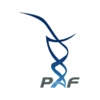Propionic Acidemia Foundation awards $50,000 Continuation Grant
Propionyl-CoA and propionylcarnitine mediate cardiac complications in patients with propionic acidemia
Guo-Fang Zhang, PhD
Duke University, Durham NC, USA
Grant term: 4/1/2023-3/31/2024
Cardiac disease has a high prevalence among patients with propionic acidemia (PA). The pathological mechanism remains largely unknown, particularly due to the nature of chronic development. It is challenging to predict the cardiac diseases development in PA patients simply by the PCC mutations, propionyl-CoA carboxylase (PCC) enzyme activity or acute metabolic changes in plasma or urine because no strong correlation between cardiac phenotype (severity of disease) and genotype, metabolic decompensations or residual enzyme activity has been observed from the clinical cases.
Fatty acids with various chain-lengths are major fuels for heart. Our previous data demonstrated that propionate rather than amino acids is a major source of cardiac propionyl-CoA. In addition, the deficiency of PCC reduces the hepatic disposal of microbiome-derived propionate and promotes odd-chain fatty acid synthesis, both of which impose metabolic stress on heart. Propionyl-CoA accumulation derived from propionate and odd-chain fatty acids could interrupt cardiac energy metabolism. The low
ATP further inhibits propionyl-CoA carboxylation according to our recent ischemia study. The impaired energy metabolism and propionyl-CoA accumulation forms a vicious circle.
ATP further inhibits propionyl-CoA carboxylation according to our recent ischemia study. The impaired energy metabolism and propionyl-CoA accumulation forms a vicious circle.
With a third-year grant support from PAF, we will collaborate with Drs Eva Richard Rodríguez and Lourdes R. Desviat from Universidad Autónoma de Madrid on how energy metabolism in PCCA- or PCCB- iPSC-cardiomyocytes derived from human patients is altered by stable isotope analysis, particularly under the stress of propionate and odd-chain fatty acids. Another Aim is to improve cardiac energy metabolism by targeting propionate and odd-chain fatty acid metabolism.
